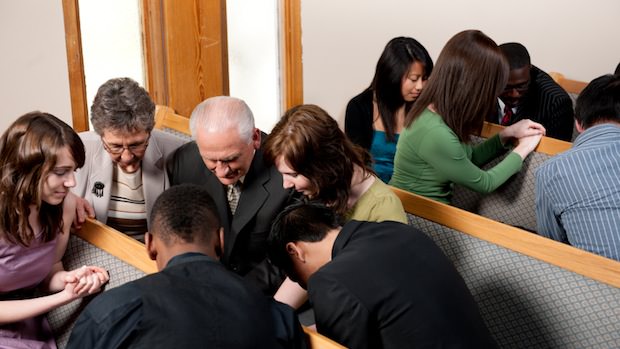Michael Porter has famously said that strategy is about making choices, about making trade-off decisions. As an example, IKEA is known for making the trade-off decision of offering great prices over offering great service. It is not that they de-value service, but they have chosen to value “low cost” more. This strategic choice impacts organizational behavior, as any good strategy does. In their physical stores, they have chosen a self-service model over a highly staffed model with sales associates interacting with customers on every aisle. They understood the “trade-offs” and made a strategic choice that has deep implications for the company.
Church leaders make strategic choices too. And often we need to do a better job understanding the implications of our choices.
One of the trade-off decisions is where a church’s small groups will meet. Will the groups primarily be off-campus or will they be on-campus?
Yesterday I blogged about the practical benefits of on-campus groups, and today I will offer four practical benefits of off-campus groups. I want to re-state that I am not passionate about one approach being better than the other. I am, however, passionate for biblical community and for leaders thinking wisely about the ministries they steward.
Four practical benefits of “off-campus” groups
1. A less expensive structure: One of the primary reasons more and more groups will meet off-campus is that less and less churches will spend significant resources building large “educational wings” for adult groups. These churches will strategically choose to take advantage of square footage that is already being heated/cooled and already being paid for on a home mortgage.
2. More volunteers for kids and students: Some churches continue to struggle with enough volunteers to invest properly in the kids and students each week. Churches that utilize off-campus groups free up a good number of leaders for the kids and student ministries.
3. Easier entry for someone who doesn’t go to church: While on-campus groups provide an easier step for someone who attends worship services, off-campus groups provide an easier step for someone who doesn’t attend church. Each summer Kaye leads a women’s group in our neighborhood, and each summer we are so encouraged by folks who come who don’t go to church anywhere but are interested in attending a Bible study.
4. More relational time: Groups that meet off-campus do provide more time for interaction and conversation. And because it is more difficult for a new person to just show up at a house, the groups are more likely to lean toward “closed” even if they are not officially “closed.” This means it is easier for the discussions to go to a deeper place because the make-up of the group is not constantly changing.
While a wise leader wants to maximize the strengths of the strategy that has been chosen, Thursday I will offer some thoughts on minimizing the downside to your groups approach.
—
For resources on groups, whether they meet on-campus or off-campus, check out groupsmatter.com






